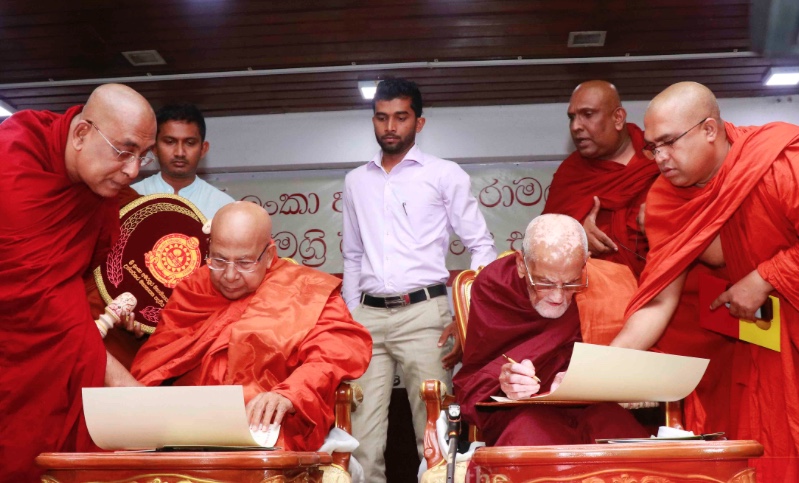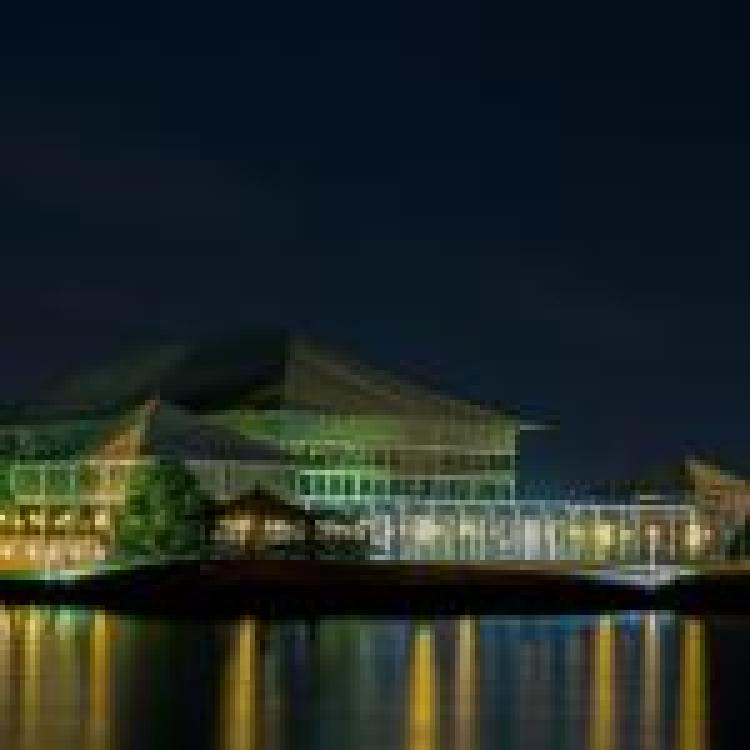
One of Sri Lanka’s largest powerful Buddhist monasteries has denied that it released a statement which called the Sri Lankan government’s proposed 20th Amendment to the constitution “regressive” and urged it not to be passed.
“Many inquired about our opinion on the 20th Amendment, but our Sangha Council or Executive Council has not held any discussion on that matter,” said Sri Lanka Amarapura Sangha Council President and Udarata Amarapura Nikaya acting Chief Prelate Ganthune Assaji.
“One has to analyse the Amendment Clause by Clause if that person wants to speak its good and bad. The Government has stated that it intends to reconsider certain Sections of the Bill at the Committee Stage debate. We are not aware what those amendments are. We are also not aware of the Court’s decision on the petitions challenging the 20th Amendment. One has to take them also in to account when expressing an opinion. I personally believe the Executive should be strengthened than it is now.”
“Ramanna Kathikawatha explicitly states that it is inappropriate for Buddhist monks to participate in political activities,” claimed Ramanna Nikaya Chief Prelate Napana Pemasiri. “It is important to honour that tradition. The Buddhist monks must be able to differentiate between politics and the Government affairs. The Buddhist monks should always work for the betterment of the society. Due to physical constraints I do not travel much. However I should have been informed of any meeting of the Sect. The Lekakadhikari monks and others should know that it is inappropriate to make statements without the knowledge of the Maha Nayaka Thera.”
An initial statement attributed to the Buddhist chapter was published by Colombo Telegraph, which said the “proposed 20th Amendment once again threatens democracy by undermining the system of checks and balances”. “The end of this process will mark the birth of authoritarianism, arbitrary despotism,” the statement claimed.


